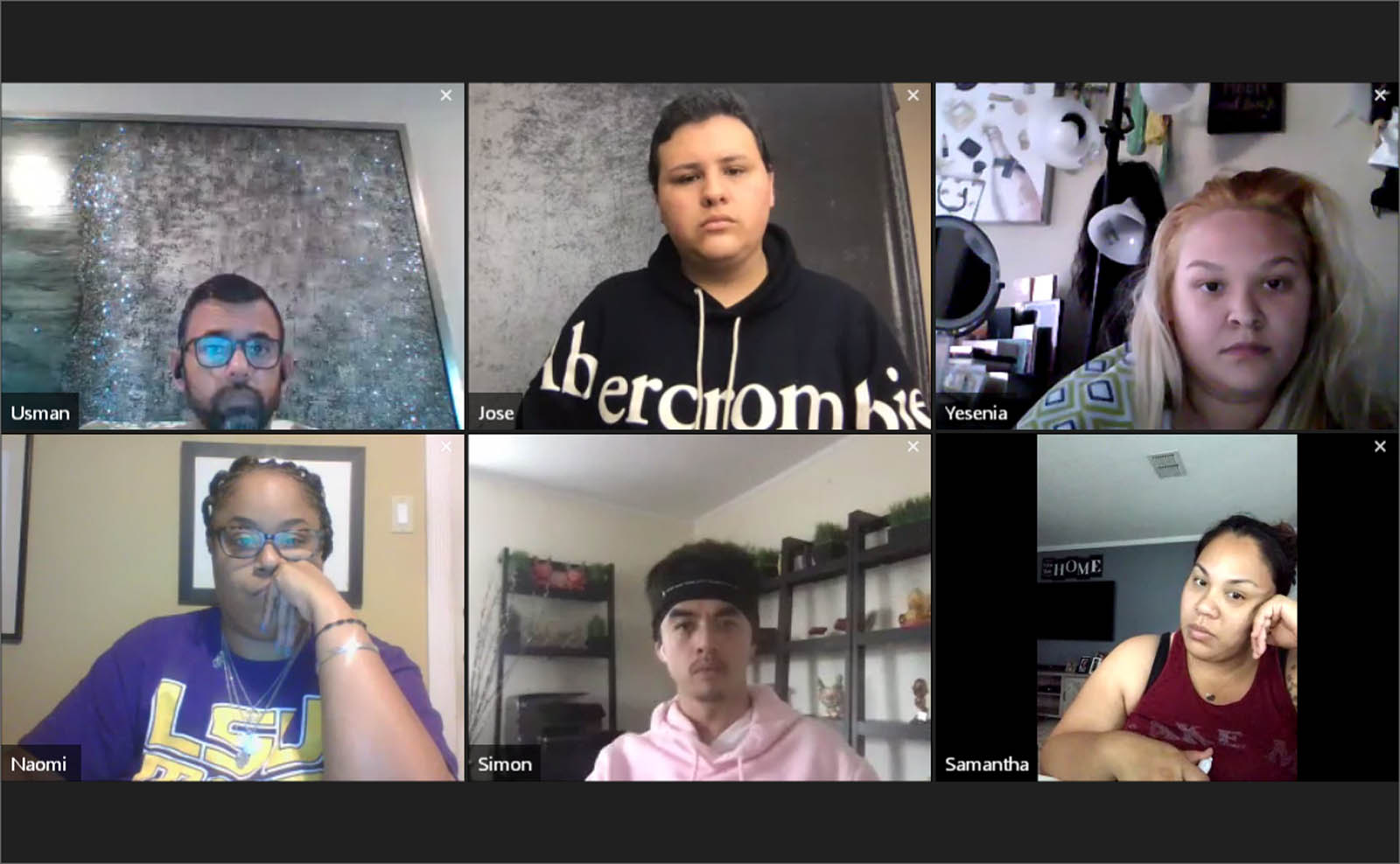
COVID-19 Pandemic: Live Consumer Panel #4 – Five Takeaways
Filed Under: Best Practices, Market Research, Multicultural
C+R’s fourth Consumer RoundTable conversation focused on multicultural consumers, including a mix of African Americans, Asian Americans, and Hispanics. In this dynamic conversation, we discussed how consumers from across the nation are coping with and adapting to the changes brought forth by the current pandemic. While viruses do not discriminate, some realities are uniquely distinct for minorities and people of different ethnicities. We are all in this together, regardless of our language and skin color; these are C+R’s key takeaways that include issues common across all consumers and some that are unique to multiculturals:
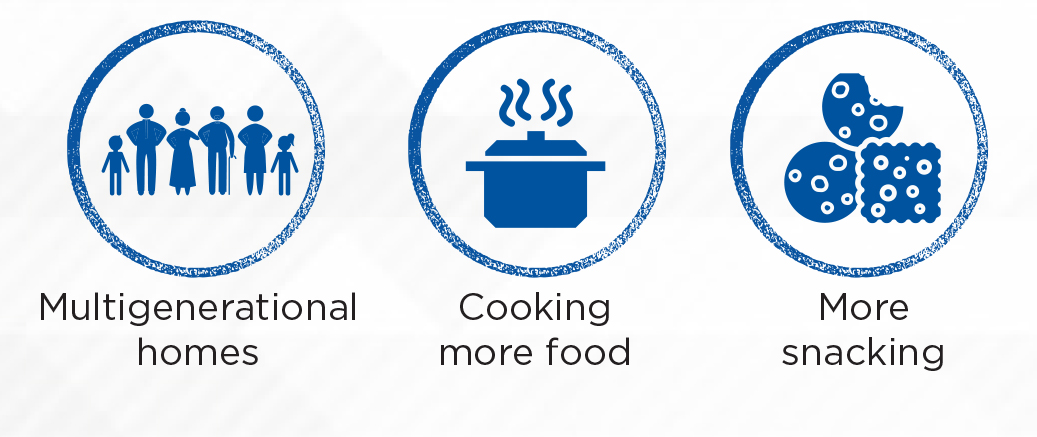
1. With larger households and multiple generations present, cooking has become a gargantuan task for multicultural consumers. Similar to Gen Pop consumers, family routines and dynamics around foods are changing for multiculturals. With everyone at home, food and snacks are in high demand, making consumers feel they and their loved ones are in a figurative eating marathon. Multiculturals’ ability to cook different foods for different family members is curbed by less frequent visits to the store. From eating more often out of boredom to cooking ‘what is available’ rather than what’s favored, multiculturals are settling into a new food reality that continues to see a preference for in-person shopping at a mix of mainstream and independent ethnic stores (which may be less equipped for online shopping and delivery options).
“We have a variety of food and we’re trying everything at this time. My mom cooks as much as she can. The grocery bill is double every other bill we have. We don’t stick to 1 type of food.”
“I know I cook 5 days a week but had the option to go out. There are places you can pick up but that’s a hassle. I was used to having cereal before school but now it’s cooking breakfast, lunch and dinner. The kitchen is always busy.”
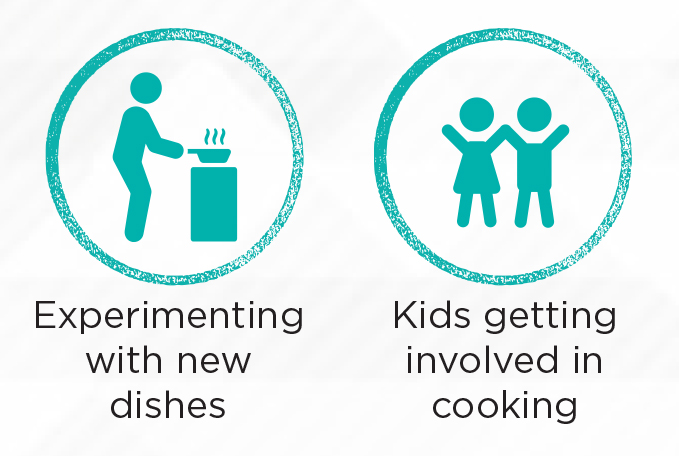
2. Experimentation in the kitchen is growing, and it is a family affair. Unusual circumstances lead to out-of-the-ordinary behaviors. Having larger families, and now with kids at home rather than at school, means multicultural consumers are experiencing increased involvement of their children in cooking and are using the kitchen as an outlet for learning and keeping them entertained through culinary experimentation.
“Trying new stuff. My kids are 5 and 7, they want to cook and bake. We’re doing more family cooking than what we have done before. It’s more of a family effort.”
“I feel like ever since my kids got off school, I’m cooking more, buying groceries more. Buying a lot more when I go. Everything I do in the kitchen the girls are there, even my son, who’s 3. He wants to crack the egg. He put shells all over the omelet this morning.”
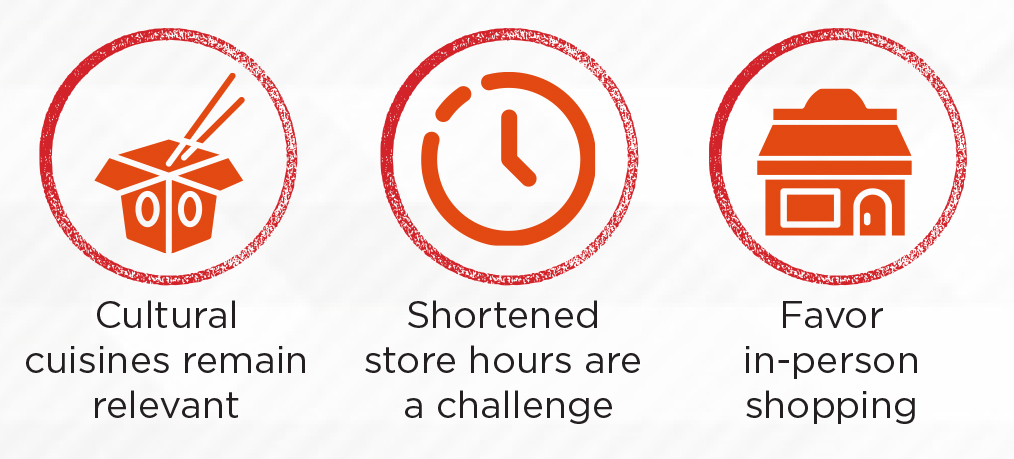
3. Cultural and ethnic cuisines remain important. Food is a vehicle for cultural expression and a defining element of the identity of most multicultural consumers, and culturally-relevant dishes are still important amidst the pandemic. As areas of the country have experienced shortages in some cultural cuisine products, multiculturals are choosing not to compromise on their choices and continue to practice culinary diversity in the face of the pandemic, notably relying on a mix of mainstream and ethnic stores in their areas to source ingredients from various cuisines. Now several weeks into shelter-in-place orders, the initial panic-purchase stage seems to have passed, and multiculturals assert that limited store operating hours for ethnic and mainstream stores alike may pose a greater challenge.
“Initially there was panic buying. But in Houston it’s gotten much better. We have a lot of ethnic stores so if you can’t find it at one there’s another 5 miles away that might have it. The panic buying has gone down a bit.”
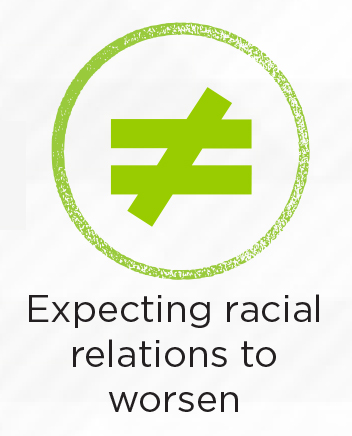
4. Minority consumers are not optimistic about race relationship and tolerance progress: racism and discrimination are expected to stay the same or worsen. Reacting to news and anecdotes of xenophobic reactions across the nation surrounding Covid-19 outbreak in the US—and in some cases, having witnessed it around them—multiculturals (regardless of their background and ethnicity) anticipate an even more race-hostile environment, attributing much of it to the current political discourse the and the tone and language used in messages by the current administration.
“I have [witnessed some xenophobic reactions] in the hospital [among] patients. They don’t want to be in the room with a Chinese, Vietnamese person. Or they make a facial expression. It started with the president [stating] this is a Chinese virus. That was so out of pocket. They didn’t cause it. It was disrespectful.”
“Education [about the virus] in America is not substantial enough. People are not being educated enough about what this virus is. The fact [is that] people are making assumptions, it’s not right at all. [Being Chinese] I personally have not been targeted but I’ve read articles about racism toward Asian Americans, of any descent. The amount of racism has increased dramatically.”
“I think racism will be a lot worse. People put this thought in their head, the media makes it worse, hating someone. I see it every day so I feel it’ll get worse.”
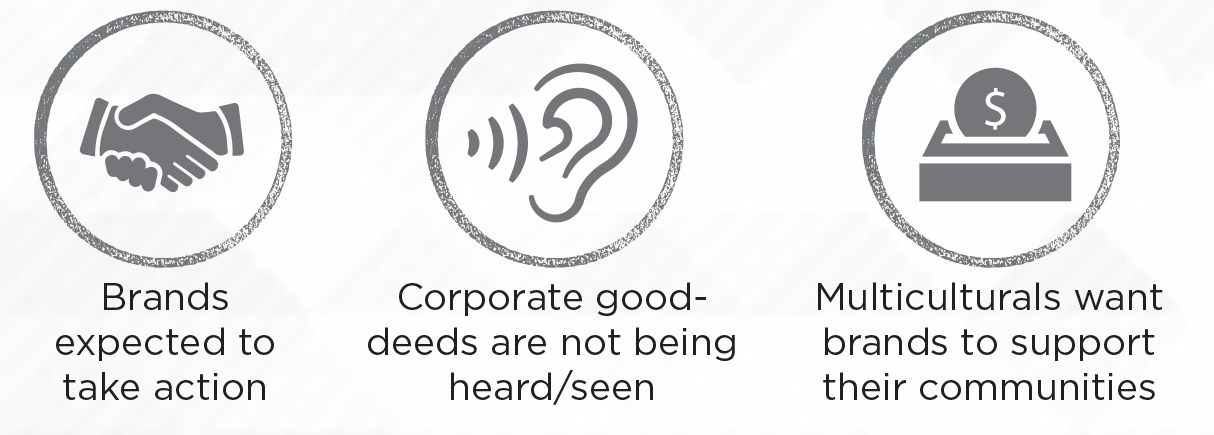
5. Multiculturals strongly believe brands have to step up and support their communities. Multicultural consumers share the sentiment that companies and brands should get involved in relief efforts for communities that have been hard-hit by the pandemic. While their plea is universal and not race-exclusive, they acknowledge that minority consumers and their communities may require more assistance. Importantly, although marketing practitioners and people in the business environment may be aware of corporate good deeds, multicultural consumers are not hearing much about those efforts unless it makes it to mainstream media.
“I haven’t heard of major companies doing much to make an impact. Some celebs have given donations, but I haven’t heard of major companies doing things like that.”
“Advertising to help the community. Some restaurants are asking for help. We want to know what companies are doing for us and what we can do for them.”
“Help out small businesses that are closing down, especially businesses owned by minorities. Make donations to them to help them get back on their feet. “
“Lend a hand and offer services to minorities and immigrants. Lend a hand, services, food.”
C+R’s take: this is a good time to gain the loyalty of multicultural consumers through genuine empathy and empathetic action.
Get involved and support multicultural and minority communities… now! Multicultural consumers are experiencing the same and heightened tensions and challenges of the pandemic disruptions, but they long for some normalcy. In addition to the financial and emotional hardships that have resulted, multiculturals face additional challenges related to race and ethnicity; and your brand can chip in to lift them emotionally. Think about creative at-a-distance ideas and activities for them to cook more creatively and involve the whole family, consider a challenge aimed at helping multiculturals entertain their children at home; or a culinary challenge that focuses on ethnic cuisines so they can continue nurturing their ties to their cultural roots. Equally important: take a stand against xenophobia and racism, and promote tolerance and inclusion.
Let them know how you are lifting them up! Your company might feel hesitant about promoting its charitable efforts and risk coming across as profiting from a crisis… it’s normal. But in times of extreme need and distress, multiculturals can find comfort in knowing that companies are committed to helping them and others around them. Done right, messages about the way you’re helping in this crisis may just be the bridge to a long-lasting, loyal relationship with multicultural consumers.
Click here to download the 5-Takeaways infographic!
Click here to read about our Five Takeaways from our first live consumer panel!
Curious to hear more? We’re hosting our final Consumer Connections Series – The COVID-19 Chronicles consumer panel Understanding Where We Are Six Weeks Later on Thursday, April 30 at 12pm Central. Sign up here.
explore featured
Case studies
